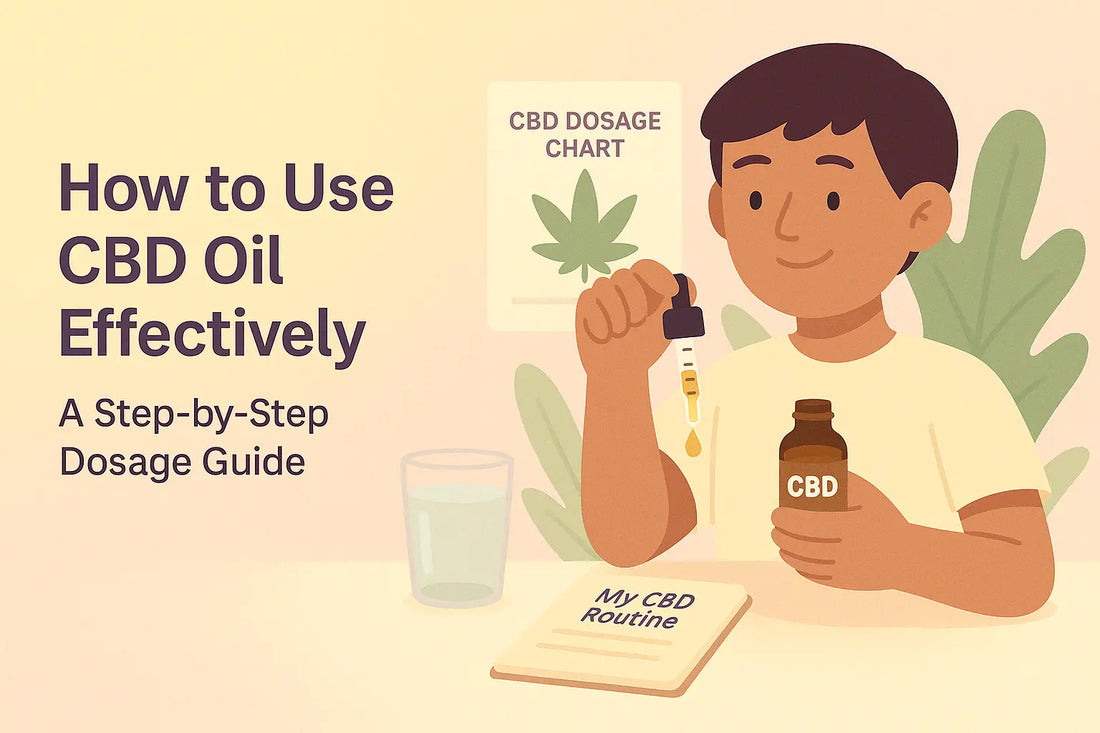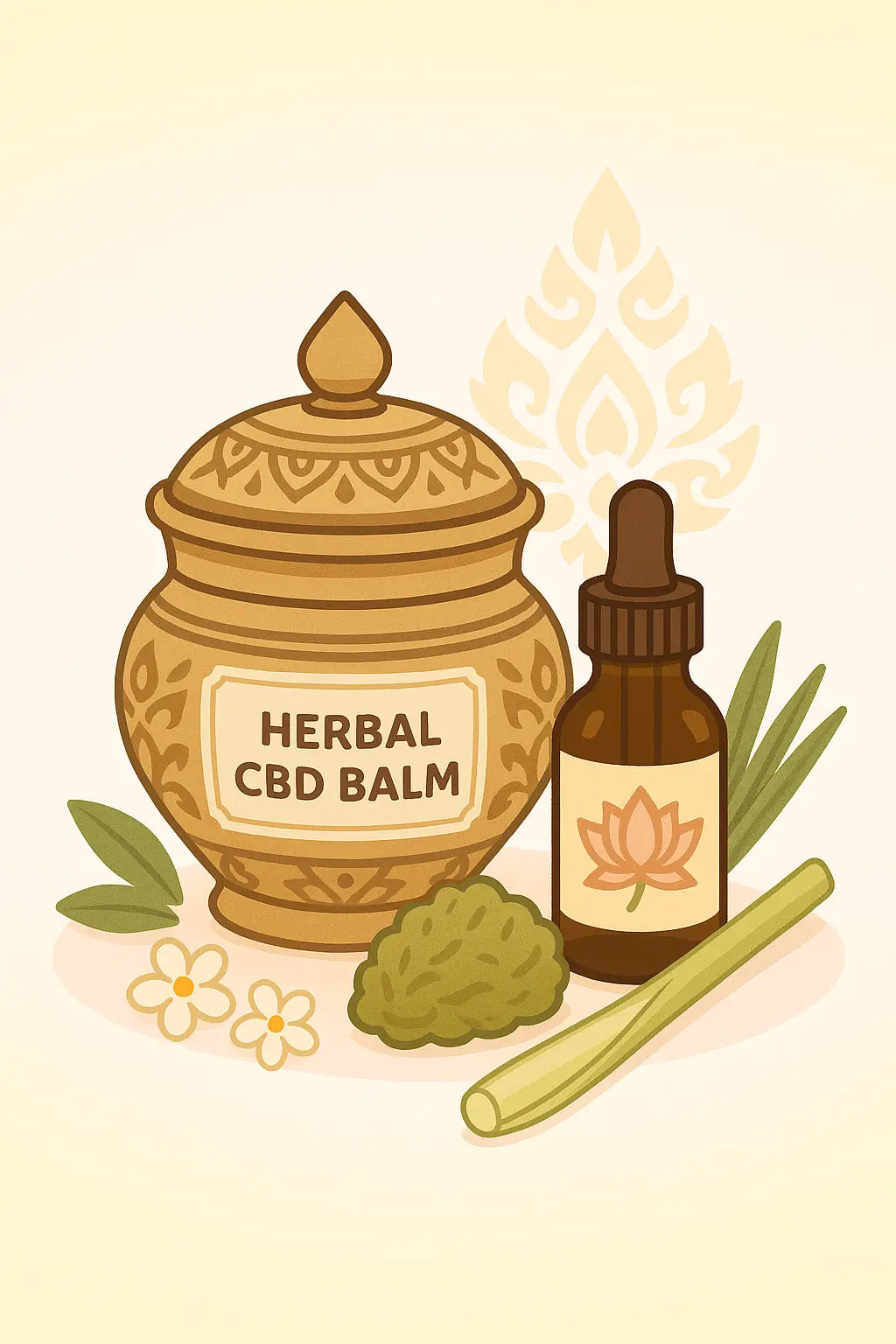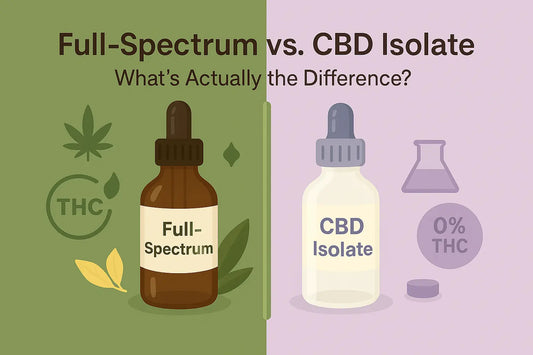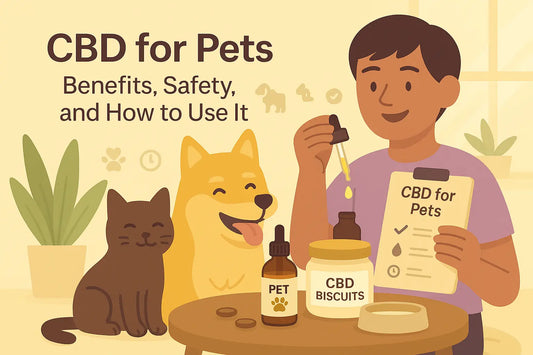
How to Use CBD Oil Effectively: A Step-by-Step Dosage Guide
Cenk CetinShare
Introduction
CBD oil has become a go-to wellness supplement, valued for its ability to promote relaxation, enhance sleep, and support overall health. As more people explore its benefits, one key question remains: How much CBD should you take for optimal results? Finding the right dosage is crucial, as it varies from person to person based on factors like weight, body chemistry, and the specific condition being addressed. In this guide, we’ll break down the process of determining the right CBD dosage, making it easier for you to unlock the full potential of this natural remedy and tailor it to your unique needs.
Key Takeaways
- Factors like body weight, metabolism, and the condition being treated impact the right CBD dose.
- Begin with a small dose and gradually increase as needed.
- Keep a journal to monitor effects and adjust dosage for optimal results.
- Seek medical advice if unsure about dosage or interactions with medications.
Factors That Influence Your Ideal CBD Dosage
Finding the right CBD dosage isn’t a one-size-fits-all approach—several key factors determine how much you should take to experience the desired effect. Understanding these variables will help you fine-tune your dosage for the best possible results.
-
Body Weight & Composition: Just like with other supplements, individuals with a higher body weight may require a larger CBD dose to feel its full effects. A lighter person, on the other hand, may benefit from a smaller amount.
-
Personal Body Chemistry: Everyone’s body processes CBD differently. Factors like metabolism, genetics, and even gut health can impact how quickly and effectively CBD takes effect. Some may feel results almost instantly, while others may need a more consistent routine to notice changes.
-
Purpose of Use: The reason you’re taking CB matters. Lower doses may be sufficient for mild anxiety or daily wellness, whereas chronic pain or severe sleep issues might require a stronger dosage. Tailoring your intake based on your specific needs is key.
- CBD Potency & Product Type: Not all CBD products are created equal. Oils, capsules, and edibles come in different concentrations, meaning one drop of CBD oil from one brand may be far stronger than another. Always check product labels to determine the potency and adjust accordingly.
General Guidelines for Starting CBD
Finding the correct CBD dosage is crucial for unlocking its full potential and optimizing its benefits in your wellness routine. Because each person’s body reacts uniquely, taking a systematic approach can help create a more seamless and effective experience.
Start Small: It’s best to begin with a low dose—typically around 20-40 mg per day—to gauge how your body reacts. This allows you to assess its effects without taking more than necessary.
Increase Gradually: If you don’t notice any benefits after a week, try increasing your dose by 5 mg at a time until you achieve the desired results. Slow adjustments help minimize the risk of side effects and ensure you find the right balance for your needs.
Stay Consistent: Taking CBD at the same time each day can help regulate its effects and make it easier to track any improvements. Whether you take it in the morning, afternoon, or before bed, consistency is key to maximizing its potential benefits.
By following these steps, you can fine-tune your CBD dosage to align with your personal wellness goals.
Calculating CBD Dosage from Products
Determining the right CBD dosage can be tricky, especially with various product strengths and formulations on the market. Here’s how to accurately measure and adjust your dosage based on the product you’re using.
-
Understanding Products Labels: Always check the label to determine the CBD content per serving. Some tinctures list the total CBD in the bottle, while others specify the amount per milliliter (mL) or drop.
-
Using a Dropper: Most CBD oils come with a dropper, making it easier to measure doses. For a 30mL bottle with 600mg of CBD, each full dropper (typically 1mL) provides about 20mg of CBD. To determine the dosage per drop, divide accordingly.
- Adjust Dosage: Once you know how much CBD is in each drop or mL, you can measure your dosage accurately. Start with a small amount and gradually increase until you reach your desired effect. It's advisable to use a CBD dosage calculator to personalize your dosage based on your body weight and the condition you're addressing.
Administration Tips
How you take CBD oil can influence how quickly and effectively it works. Here are some best practices to maximize its benefits:
-
Sublingual Method: Place CBD oil under your tongue and hold it for 30-60 seconds before swallowing for faster absorption. This method allows CBD to be absorbed directly into the bloodstream, avoiding digestion for quicker onset of effects.
-
With Food: Taking CBD with a meal rich in healthy fats (such as avocado, nuts, or fish) may improve absorption, as CBD is fat-soluble and binds well to dietary fats.
- Timing Matters: Choose the right time of day based on your needs—morning doses may help with focus and energy, while evening use can promote relaxation and better sleep.
Monitoring and Adjusting Dosage
Finding the perfect CBD dosage is a personal journey, and tracking your experience can help optimize results. Here’s how to refine your CBD routine effectively:
-
Keep a Journal: Record your dosage, time of consumption, and effects daily. Noting any changes in mood, sleep, or pain levels can help you recognize what works best for your body.
-
Assess and Adjust: If you’re not noticing the desired effects after a few days, gradually increase your dose in small increments (e.g., 5 mg per week) until you achieve optimal results. Conversely, if you feel overly drowsy or experience discomfort, consider lowering your dose.
- Consult Healthcare Professionals: If you’re unsure about adjustment or experience unexpected side effects, speaking with a doctor or CBD specialist can provide valuable guidance tailored to your specific needs.
Potential Side Effects and Considerations
While CBD is generally well-tolerated, it’s important to be aware of possible side effects and other key factors before incorporating it into your routine.
-
Common Side Effects: Some individuals may experience mild effects such as drowsiness, dry mouth, or shifts in appetite. These reactions often depend on dosage and individual body chemistry.
-
Drug Interactions: CBD may interact with some medications, potentially influencing their effectiveness. Before using CBD, it's advisable to speak with a healthcare professional if you're taking prescription medications.
- Legal Status: Since CBD laws differ by location, it's important to check local regulations to ensure you're following the legal requirements. As of 2025, CBD is legal in Thailand for medical purposes under strict regulations. Recreational use and possession of cannabis products exceeding 0.2% THC remain illegal. It's important to verify local laws to ensure compliance with legal guidelines.
By staying informed about these considerations, you can use CDB safely and effectively as part of your wellness routine.
Wrap Up
Finding the right CBD dosage is a highly personal process, as everyone’s body responds differently. Starting with a small dose and gradually increasing it allows you to fine-tune your intake for optimal results Tracking your experience in a journal and following a regular routine can provide valuable insights into what yields the best results for you.
Remember, patience is key—CBD’s effects may take time to fully manifest. If you’re unsure about dosage adjustments or experience any concerns, consulting a healthcare professional can provide additional guidance. With the right approach, CBD can become a valuable tool in supporting your overall wellness and helping you achieve your health goals.








